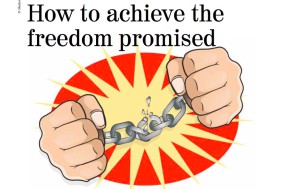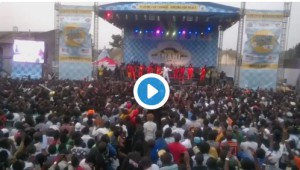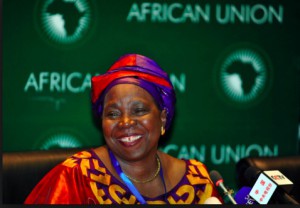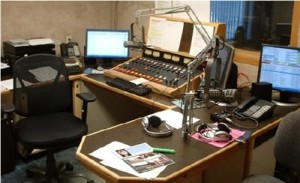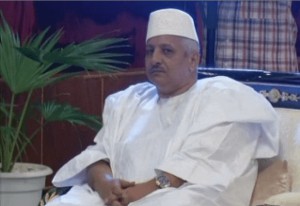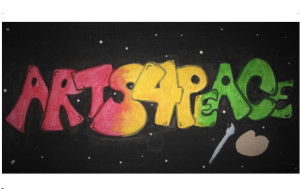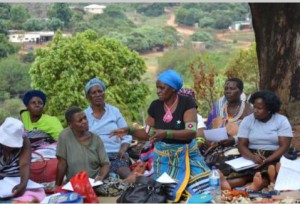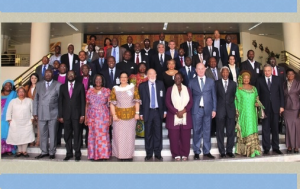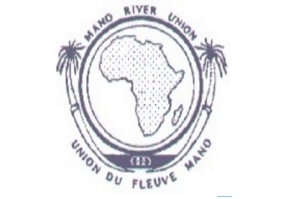FREE FLOW OF INFORMATION
A declaration received by email from the Congo Peace Network (translated from the French by CPNN)
In the face of decades of “recurring wars” maintained by local and regional actors, including Rwanda and Uganda, the Democratic Republic of the Congo (DRC) has seen one “peace accord after another” since 2006.

Most of these peace agreements were signed under the aegis of the international community. Among the most important of these agreements were the Ceasefire Agreement of Lusaka of 30 July 1999; the Global and Inclusive Agreement on the Transition in DRC, signed December 17, 2002, in Sun City, South Africa and the constitution of the transition of April 4, 2003 with its five main specific objectives, namely:
1. The reunification, pacification, reconstruction, restoration of territorial integrity and the restoration of State authority throughout the national territory;
2. National reconciliation;
3. The formation of a national army, restructured and integrated;
4. The organization of free, democratic and transparent elections at all levels enabling the establishment of a democratic constitutional regime;
5. The establishment of structures that will lead to a new order politique. For this the Senate proposed a draft constitution submitted to popular referendum on December 18 2005. . . .
I. THE NEW CONSTITUTION OF 18 FEBRUARY 2006
By a margin of 83%, the Congolese massively voted “yes” at the ballot box because the constitution defined a “new path” for the Congolese people who have been wounded and desperate for a long time now. . . [The Constitution of 2006 called for] the rule of law, democracy and good governance; respect for the dignity of the human person with special attention to vulnerable people (children, women, elderly, minorities, prisoners, foreigners, refugees, etc.); the protection of civil liberties and fundamental rights of the person and the family; peace, security, unity and integrity of the national territory, the socio-economic development, free enterprise and fair redistribution of national wealth; justice and the fight against corruption and impunity, etc . . .
In the ten years since the Constitution was adopted, have its promises been carried out by the Congolese state and democratic institutions?
II. CONTRIBUTION TO THE CONSTITUTION OF 18 February 2006 ON PEACE, SECURITY, JUSTICE, DEMOCRACY, GOOD GOVERNANCE, RESPECT FOR HUMAN RIGHTS IN DRC.
. . . [Since adoption of the Constitution] the DRC has seen significant progress in terms of democracy, security, peace, good governance, justice and human rights.
a) Democracy: Election
Since gaining independence, the DRC had never organized an “election” that could qualify for: free, transparent, democratic and credible.
For the first time, in 2006 we participated in provincial, national and presidential elections that were welcomed and supported by the international community, under the direction of the Independent Electoral Commission (IEC), chaired by l’Abbé Apollinaire Malumalu Muholongu.
In 2011 the IEC was changed to the Independent National Electoral Commission (CENI), which organized the elections once again. This time it led to political and security instability and give birth to the rebel groups such as the March 23 Movement (M23); which refused to recognizer the legitimacy of the central government, as many observers both domestic and international found that the elections were marred by many irregularities. It seems that there was institutionalized electoral cheating orchestrated by Mr. Pastor Ngoy Mulunda Daniel, president of the CENI at that time. . .
b) Peace and security:
On peace and security, efforts have been made again and again, but despite all that, there is still much to do.
The eastern part of the DRC continues to experience instability and insecurity because of the resurgence of armed groups that proliferate in many territories in the provinces of North Kivu and South Kivu and in the former Eastern Province and some parts of the former Katanga province.
The population of North Kivu has never lived in a situation of calm. Instead, there have been massacres in the territories of Beni, Lubero, Rutshuru Masisi and Walikale. There is an ongoing need for efforts by national, provincial and local authorities to establish peace and safety for persons and property.
c) Justice and respect for human rights
In the eyes of Congolese citizens justice remains only a parody; it is favorable only to those who are wealthy and strong financially and politically, while it is unfavorable to the citizens who are weak materially, politically and financially. It does not meet the promise that “all Congolese are equal before the law and entitled to equal protection” as per article 12 of the constitution. A maxim says, “Righteousness exalts a nation.”
While the constitution provides that the judiciary should be independent of the executive and legislative powers (Article 149), the reality on the ground proves otherwise. The courts fail to provide the independence, impartiality and neutrality in the performance of their mission, which is their responsibility.
With regard to respect for fundamental rights and freedoms, the judiciary should guarantee individual freedoms and fundamental rights of citizens under Article 150 of the constitution. Is this provision respected and observed it in its fullness in the DRC? If so, how can we explain the treatment of prisoners in correctional facilities (prisons, jails, etc.)? Political prisoners from opposition political parties and militant activists of human rights have often been the victims of unlawful detentions and arbitrary arrests, inhuman and degrading treatment and even torture; This has been inflicted on them by officials of the FARDC, PNC, ANR and other security services. Much remains to be done to make respect for human rights a reality in the DRC.
d) Socio-economic development: redistribution of national wealth
The socio-economic situation in the DRC is alarming due to insecurity and unemployment without limit in the Congolese population in general. All this is due to what? The eye of the observer can see that in the DRC, a small number of Congolese control most of the national wealth at the expense of a great mass of citizens. The government benefits the wealthy of the country at the expense of the governed. It ignores the satisfaction of the general interest which should be the prime objective for any government or authority responsible and worthy of its name.
As long as the problem of hunger, education, unemployment and insecurity is not resolved, the Congolese socio-economic climate will remain unsuccessful in its path of development.
III. SOME SIGNIFICANT ADVANCES
In territorial terms, the implementation of 26 provinces under Article 2 of the constitution is a success. However, the actual territorial decentralization in the DRC has been violated by the Central Government. The government has appointed “special commissioners” instead of organizing the election of provincial governors in 21 provinces. “Special commissioners” have also been appointed for the 5 other provinces which have not undergone the territorial division, Kinshasa, Bas-Congo, North-Kivu, South-Kivu and Maniema? Will the “special commissioners” be accountable to the people or the president who appointed them? Their appointment is unconstitutional and it risks plunging the country into dictatorship or, at best, ungovernability. “it is he who appointed that returns the power to revoke” that is to say, they are accountable to the person of the current head of state.
In short, our task is huge because now that we have a constitution, our civic duty is, and should be to preserve it, to help it mature and to give it effect by recognizing it as the “legal standard reference base for the rule of law to which all we aspire, whether we are governors or governed.”
e) In terms of infrastructure:
Several projects have either been constructed and rehabilitated in the areas of transportation, health, education, electricity, etc. Although kilometers of roads have been paved, hospitals and health centers schools, etc. have been constructed, much remains to be done because the DRC is still under construction.
(Article continued in the right column.)
(Click here for the French version of this article.)
(Article continued from left column)
IV. THE KEY CHALLENGES OF THE CONSTITUTION
In principle, the Constitution of the 3rd Republic in DRC should define the rules and the principles to resolve the political crises that have shaken Congo-Zaire since gaining independence. It should establish normative rules to govern the Republic reflecting the fundamental concerns of the Congolese people and establishing a political society based on reliable and stable institutions. The framers of the Constitution of the DRC, have they achieved this? We do not think so.
1. Terriorial division
Article 2 states that the DRC has 26 provinces. In reality, this territorial division is not in itself a bad idea. However, as it is provided for in the 2006 Constitution this division constitutes a time bomb that promotes “secessionist or separatist ideas or passions” of those who ignore the essence of the concept of general interest of the State, the nation or the national unity of the Congolese people.
The risk of secession or separation is not a false assumption. For proof; simply scan the “demographics” of each of its provinces. For exemple, the Province of Tshuapa is formed only by the “Mongo”; the Northern provinces and Sud-Ubangi District, are on their respective turn composed or formed respectively by “Ngbaka” and “Ngbandi”. From this it would seem that the Congolese authorities who organized this division wanted through the constitution “to legitimize the division of the country and the disunity of the Congolese people” . . .
2. Free primary education in the DRC
Article 43 Al 3 clearly states that “primary education is compulsory and free in public schools.” The constitution provides for compulsory and free primary education to banish illiteracy of the population. However, this provision has not been respected in any public institution. Street children abound in many towns and villages of the country, because the children of parents who are unemployed, vulnerable, disabled and displaced are excluded from education. Instead, they should be recognized as our hope for the future. In the words of President Mobutu “Youth is the lifeblood that can ensure the future of our country.”
Until the right to education is guaranteed for all children, we cannot really expect that the phenomenon of “street children” will end.
3. Political pluralism in DRC
Article 8 provides that “political opposition is recognized in the Democratic Republic of Congo. The rights associated with its existence, its activities and its struggle for democratic election to power are sacred. Any limits should be imposed equally on all parties and political activities by this Constitution and the law” . . .
Political power should be obtained only through elections that are free, democratic, transparent and credible. However, unfortunately, the experience of the 2011 elections showed that they favored only the majority for many reasons: for example, in many areas and territories under the control of armed rebels and opponents, it was not possible to campaign.
This year 2016 is an election year, but observers and analysts warn that there are plans by the “Presidential majority” to postpone elections at all levels, local, municipal, city, provincial, national and presidential under the pretexts of: insecurity (especially in the East (North & South Kivu) ; the so-called problem of “new voters”; the situation of Congolese from abroad; and the so-called lack of financial resources” . . . Although the Constitution limits the mandate of the President of the Republic to two terms, it seems that the President and his family wishes to revise this Constitutional provision and apply for a third term.
In view of the above, we propose:
1. To respect the pillars of democracy in the DRC: sovereignty, justice, equality; the rule of law, tolerance, transparency, accountability of rulers, the guarantee of human rights, political pluralism, democratic and peaceful acquisition of power, free, democratic and transparent elections, fair results of the polls, the protection of minorities and entrepreneurship;
2. To prepare and to undertake the electoral process in 2016 (the activity at hand immediately).
3. That the actors, institutions and individuals who have the responsibility to run the democratic regime established by the Constitution, should work for the satisfaction of the general interest;
4. A financial base sufficiant for the operation and equipment of the state apparatus in its various components as defined by the Constitution;
5. Training and establishment of political and security functionaries at the state level who can promote a foreign investment climate in the DRC;
6. Training and implementation of socio-cultural and economic functionaries at the state level to foster the development of the country;
7. A new national policy to create jobs for the youth and the entire nation.
Abraham Lincoln defined democracy as “power of the people, by the people and for the people.
When the state wants to provide a legal status and the means of survival and operation, the state adopts a Constitution. The state and the Constitution are closely related to each other, because the state is ultimately the legal seat of public power. We should keep in mind that the Constitution of a country is a long-term process, sometimes subject to delays and changes in the socio-political and economic context, in short, a dynamic affecting life in society.
In addition, we remind all political actors in the DRC, that politics is a sacred mission, that is to say, it must be used to improve the welfare of all citizens without exception.
Alas, although our 2006 Constitution pursues the happiness of the Congolese people; the Congolese politicians wrongly and maliciously consider that the Congolese people are “hypnotized, amorphous or even naive.” They fail to realize that the day will come when the people will rise up and commit to the struggle needed to defend itself with dignity in order to make the republic a showcase par excellence where there will be peace, security and where democracy, good governance, respect for human rights will be a foundation for this young democratic country that is the DRC.
Ultimately, “Dear political and administrative authorities of the DRC, you should know that the tranquility of the soul is a guarantee of longevity and that respect for the Constitution is a bond to ensure the peace of the soul of the Congolese people. ”
President Kabila and all political actors must understand that the current Constitution and respect are a National Partnership for peace and dignity for all. Lack of respect for the Constitution is unacceptable for the Congolese people in general and youth in particular. In no event, nor under any circumstances, will we resign ourselves and give up our rights to our happiness, to our dignity and security, or to stop dreaming of a Congo where all human beings can live in equality, free in rights and dignity.
IN THE LIGHT OF THE FOREGOING, WE YOUTH CLUB MEMBERS OF THE BOARD OF CONGO PEACE CLUB NETWORK FOR PEACE, HUMAN RIGHTS, JUSTICE AND NON VIOLENCE, DECLARE ON THE OCCASION OF THE 10th ANNIVERSARY THE Constitution of the Democratic Republic of the Congo:
1. Any violation of the Constitution of February 18, 2006 as amended to date is unacceptable as it would destroy the solidarity of the Congolese people for peace, dignity, justice and reconciliation;
2. The constitution of February 18, 2006 should be respected by the institutions of the country, by all political actors and tby he entire Congolese people as it is the national partnership for peace and dignity for all Congolese.
3. The Independent National Electoral Commission should publish an electoral schedule that guarantees democratic change in 2016 in accordance with the current Constitution in letter and spirit;
4. We will resist any attempt to disturb public order and social peace by violating the terms of the Constitution or by failing to publish a consensual schedule for elections.
5. Peace, unity and love must prevail before, during and after the elections to be organized this year 2016. God bless and protect the Democratic Republic of Congo
Done at Goma, February 18 2016, by the Congo Peace Network
Patrick Mulemeri, Coordinator
Signed by the COUNCIL OF THE CONGO PEACE CLUB NETWORK
